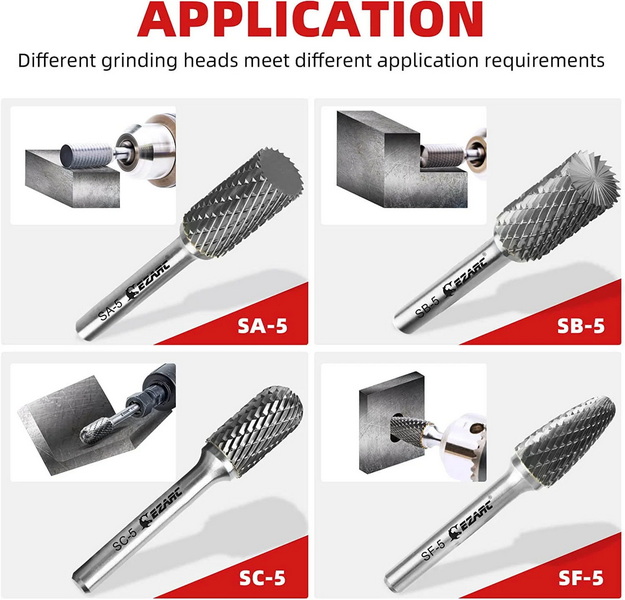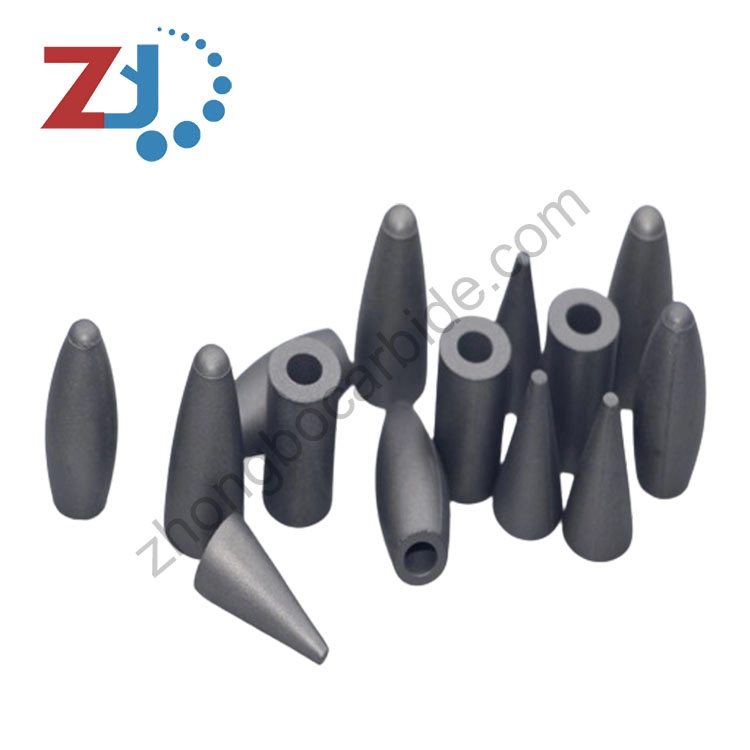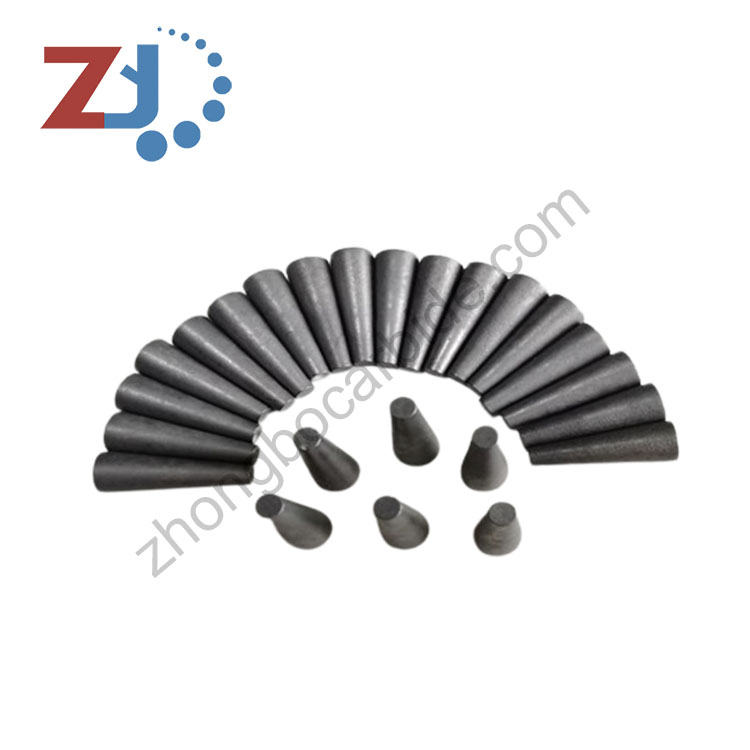Content Menu
● Introduction to Carbide Burrs in Equine Dentistry
>> Types of Carbide Burrs
● Applications of Carbide Burrs in Equine Dentistry
● Benefits of Carbide Burrs in Equine Dentistry
● Challenges and Considerations
● Future Developments
● Integration with Other Technologies
● Training and Education
● Case Studies and Success Stories
● Economic Impact
● Ethical Considerations
● Conclusion
● Frequently Asked Questions
>> 1. What are the primary benefits of using carbide burrs in equine dentistry?
>> 2. How do carbide burrs help in dental sectioning and extraction?
>> 3. What precautions should be taken when using carbide burrs to avoid thermal injury?
>> 4. How do carbide burrs compare to other materials used in equine dentistry?
>> 5. What role do carbide products play in maintaining equine dental health beyond procedures?
● Citations:
Carbide burrs have become an essential tool in equine dentistry, significantly enhancing the efficiency and precision of dental procedures. These burrs, made from tungsten carbide, are renowned for their durability and ability to cut through hard materials, making them ideal for various applications in veterinary dentistry.

Introduction to Carbide Burrs in Equine Dentistry
Carbide burrs are versatile tools used across multiple industries, including dentistry, jewelry making, and automotive manufacturing. In equine dentistry, they are particularly valuable for their ability to remove sharp enamel points, correct malocclusions, and perform complex dental extractions.
Types of Carbide Burrs
Carbide burrs come in several types, including single cut, double cut, and non-ferrous models. Double cut carbide burrs are commonly used in equine dentistry because they provide more control and leave a smoother finish compared to single cut burrs. This is crucial for minimizing trauma to the horse's mouth and ensuring a precise dental procedure.
Applications of Carbide Burrs in Equine Dentistry
1. Dental Sectioning and Extraction: Carbide burrs are used for sectioning teeth during extraction procedures. This technique is particularly useful for complicated cases where traditional extraction methods are not feasible. The burrs help in dividing the tooth into manageable pieces, which can then be removed more easily.
2. Removing Sharp Enamel Points: Sharp enamel points can cause discomfort and hinder the horse's ability to chew properly. Carbide burrs are effective in smoothing these points, improving the overall dental health of the horse.
3. Correcting Malocclusions: Malocclusions can lead to significant dental issues if not addressed. Carbide burrs are used to reshape teeth and correct these abnormalities, ensuring proper alignment and function of the dental arcade.
Benefits of Carbide Burrs in Equine Dentistry
- Precision and Control: Carbide burrs offer high precision, allowing veterinarians to perform delicate procedures with minimal risk of damage to surrounding tissues.
- Efficiency: They are capable of removing material quickly, reducing the time required for dental procedures and minimizing stress on the horse.
- Durability: Carbide burrs are highly durable, requiring less frequent replacement compared to other materials, which can reduce costs over time.
Challenges and Considerations
While carbide burrs are invaluable in equine dentistry, there are challenges and considerations to be aware of:
- Thermal Injury: The high-speed rotation of carbide burrs can generate heat, potentially causing thermal injury to dental tissues. Water cooling is essential to mitigate this risk.
- Operator Skill: The effective use of carbide burrs requires skilled operators to avoid damaging the horse's mouth or causing unnecessary stress.

Future Developments
As technology advances, we can expect improvements in carbide burr design and functionality. Innovations such as enhanced cooling systems and more precise control mechanisms will further enhance the safety and efficiency of equine dental procedures.
Integration with Other Technologies
The integration of carbide burrs with other advanced technologies, such as dental imaging and computer-aided design (CAD), can enhance the precision and effectiveness of equine dental procedures. For instance, using 3D imaging to plan dental interventions can help veterinarians identify the most appropriate areas for carbide burr application, ensuring that procedures are both precise and minimally invasive.
Training and Education
To fully leverage the benefits of carbide burrs, veterinarians must undergo comprehensive training. This includes understanding the proper use of carbide burrs, recognizing potential risks, and mastering techniques to minimize stress and trauma during procedures. Continuous education and workshops are essential for staying updated on the latest techniques and technologies in equine dentistry.
Case Studies and Success Stories
Numerous case studies highlight the success of carbide burrs in equine dentistry. For example, in cases where horses have suffered from severe malocclusions, carbide burrs have been used to reshape teeth and restore proper dental alignment. These interventions have significantly improved the quality of life for affected horses, enhancing their ability to eat and reducing pain.
Economic Impact
The use of carbide burrs also has an economic impact on equine dental care. By reducing the time required for procedures and minimizing the need for frequent tool replacements, carbide burrs can help lower costs for both veterinarians and horse owners. Additionally, the improved dental health achieved through these procedures can lead to reduced veterinary bills over time by preventing more severe dental issues.
Ethical Considerations
Ethically, the use of carbide burrs aligns with the principle of minimizing animal suffering. By providing precise and efficient dental care, veterinarians can ensure that horses receive the best possible treatment, reducing pain and discomfort while improving their overall well-being.
Conclusion
Carbide burrs have revolutionized equine dental procedures by offering precision, efficiency, and durability. Their versatility in various dental applications makes them an indispensable tool for veterinarians. As advancements continue, the role of carbide products in equine dentistry will only expand, contributing to better dental health outcomes for horses.

Frequently Asked Questions
1. What are the primary benefits of using carbide burrs in equine dentistry?
Carbide burrs offer precision, efficiency, and durability, making them ideal for complex dental procedures. They allow for precise control, reducing the risk of damage to surrounding tissues, and are capable of removing material quickly, which can reduce procedure time and stress on the horse.
2. How do carbide burrs help in dental sectioning and extraction?
Carbide burrs are used to section teeth into manageable pieces during extraction procedures. This technique is particularly useful for complicated cases where traditional extraction methods are not feasible, allowing for a more controlled and less invasive approach.
3. What precautions should be taken when using carbide burrs to avoid thermal injury?
To avoid thermal injury, it is crucial to use water cooling during procedures. This helps maintain a safe temperature and prevents damage to dental tissues. Additionally, moving the burr regularly and avoiding prolonged contact with a single area can further reduce the risk of thermal injury.
4. How do carbide burrs compare to other materials used in equine dentistry?
Carbide burrs are more durable and efficient than many other materials used in equine dentistry. They offer better precision and control, making them preferable for delicate procedures. However, they require skilled operators to ensure safe and effective use.
5. What role do carbide products play in maintaining equine dental health beyond procedures?
Beyond procedures, carbide products contribute to maintaining equine dental health by enabling precise and efficient dental care. Regular use helps prevent complications such as malocclusions and sharp enamel points, ensuring the horse's overall dental health and comfort.
Citations:
[1] https://www.frontiersin.org/journals/veterinary-science/articles/10.3389/fvets.2024.1367861/full
[2] https://www.heritageanimalhealth.shop/products/equine-dental-carbide-chip-medium-grit
[3] https://www.carbide-burs.com
[4] https://im3vet.com/dental-bur-conical-carbide-long-ra-single/
[5] https://www.burrs4less.com/equine-dental-carbide-burs.html
[6] https://www.carbideburr.net/faq/
[7] https://emsvet.com/newsletters/equine-dentistry-not-just-a-float/
[8] https://pmc.ncbi.nlm.nih.gov/articles/PMC10901997/
[9] https://pressbooks.umn.edu/app/uploads/sites/7/2019/08/8_Equine-Dentistry_Dr.-Linn.pdf
[10] https://www.isvma.org/wp-content/uploads/2020/11/EssentialsforEquineDentalCare.pdf
[11] https://thehorse.com/116089/equine-dentistry-beyond-the-basics/
[12] https://www.georgevetgroup.co.uk/georgevets/images/grid/equine/8%20FAQs/Popular_topics/Equine_Dentistry.pdf
[13] https://equinedentalpractice.com/frequently-asked-questions
[14] https://drbrettspets.com/products/veterinary-dental-instruments-2-round-carbide-bur-10pack
[15] https://www.cabidigitallibrary.org/doi/pdf/10.5555/20193333466
[16] https://www.frmse.ma/uploads/sections/files/2020/10/KMfOGnHbQGAf3WCKd8sbuAuIEbUCV2mXOjy217Px.pdf
[17] https://www.veterinarypracticenews.com/a-veterinary-practitioners-guide-to-dental-burs/
[18] https://beva.onlinelibrary.wiley.com/doi/10.1111/eve.13849
[19] https://www.petmd.com/horse/horse-teeth-floating
[20] https://equinedentalinstruments.com/collections/burs
[21] https://www.arosystems.com.au/page/86/veterinary-dental-burs
[22] https://kruuse.com/products/consultation/large-animals/dental-treatment
[23] https://drbrettspets.com/products/veterinary-dental-instruments-2-round-carbide-bur-10-pack-1
[24] https://www.tandfonline.com/doi/full/10.1080/01652176.2017.1329598
[25] https://equinedentalinstruments.com/products/standard-3-float-blade-carbide-chip-medium
[26] https://www.etsy.com/market/equine_dental_tools
[27] https://www.horse-dental-equipment.com/product/carbide-burr-3175-mm-77-mm/
[28] https://www.dreamstime.com/equine-dentist-tools-ready-to-use-clean-tidy-white-towel-great-light-image162161542
[29] https://im3vet.com/consumables/dental-burs/fg-burs/burs-by-type/tungsten-carbide-burs/
[30] https://www.burrs4less.com/equine-carbide-burrs-778.html
[31] https://equinedentalproducts.com/shop/advanced-dentistry/3-175mm-ballnose-section-burrs-set/
[32] https://www.shutterstock.com/search/carbide-bur?page=2
[33] https://www.instagram.com/dearson_vet/p/DDt7mB-o41t/
[34] https://www.dearsonvet.com/hand-tools/carbide-chip-blades
[35] https://www.equinedentalservices.org/dental-problems/
[36] https://www.dvm360.com/view/dangers-lurk-equine-dentistry
[37] https://www.equidental.co.uk/equine-dentistry-faqs/
[38] https://www.albertsequine.com/pdf/Alberts_Catalog.pdf
[39] https://clarendonequine.co.uk/equine-dental-care-essential-tips-for-healthy-horse-teeth/
[40] https://www.ecveterinaryproducts.com
[41] https://www.frontiersin.org/journals/veterinary-science/articles/10.3389/fvets.2021.793631/full
[42] https://www.gervetusa.com/equine-surgical-instruments/equine-surgical-instruments/equine-dental-instruments/equine-dental-cutters.html
[43] https://www.horse-dental-equipment.com/product/carbide-burr-3175-mm-38-mm/
[44] https://im3vet.co.uk/consumables/dental-burs/fg-burs/burs-by-type/tungsten-carbide-burs/
[45] https://im3vet.eu/dental-bur-conical-carbide-large-ra-single/
















